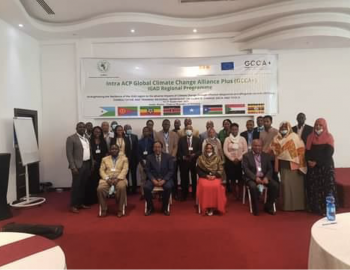Working paper: Working across scales - Learning from seven years of climate compatible development in Asia
Working paper: Working across scales - Learning from seven years of climate compatible development in Asia
The adoption of the Sendai Framework for Disaster Risk Reduction, the Addis Ababa Action Agenda, the United Nations Sustainable Development Goals and the Paris Climate Change Agreement, all in 2015, highlights the strength of international commitment behind climate compatible development. Given the immense scale of the opportunity, and the challenges globally in responding to this, John Colvin and Christina McDonagh argue in this new report by Emerald Network for CDKN for the value of stimulating climate compatible development initiatives at multiple levels of governance, from the local to the national, as well as the global. They call for designing these initiatives in ways that maximise the synergies of effective coordination between the levels.
Seven years of work by CDKN in India, Indonesia, Nepal and Pakistan offer a wealth of experience to build on. The report looks across 10 CDKN initiatives that worked at multiple scales, some focusing initially on local-level piloting, and then scaling up and out, others focusing from the outset on innovation at multiple levels of governance.
As a way to stimulate and share learning with the reader, the authors treat these 10 initiatives as a set of ‘design experiments’, all of which have benefitted the many and diverse stakeholders involved, but with some of these initiatives leading to more effective multi-level pathways of climate compatible development than others.
They argue that effective design is key to working with scale. The report analyses design through two lenses, making a distinction between pathways for working with scale, and principles for enabling effective pathway development for climate compatible development.
Pathways describe the different strategies adopted for working with scale, and are linked to outcomes. The 10 pathways fall into three broad categories:
- Short-term multi-scale pathways that are research-led, and succeed in building awareness, but fall short of embedding new practices.
- Short-term multi-scale pathways that adopt a hybrid action and research approach from the outset, and succeed in embedding new practices at some scales (mainly locally), but not at others.
- Longer-term multi-scale pathways that take an action research-led approach, and succeed in embedding new practices at multiple scales.
Analysis of these pathways suggests the following design principles for enabling effective, multi-scale pathways for climate compatible development:
- Get into action early, by encouraging the use of action research approaches.
- Adopt a flexible and adaptive management approach to project and pathway development, consistent with an action research framing.
- Extend initial short-term project investments into longer-term pathways, but only in cases where innovation is taking hold in practice as well as in understanding.
- Adopt flexible points of entry, responding to opportunities as well as more carefully planned approaches.
- Draw on a rich and flexible toolkit of knowledge brokering and knowledge networking practices, with particular attention to ‘knowledge bridging’ between sectors and between scales.



